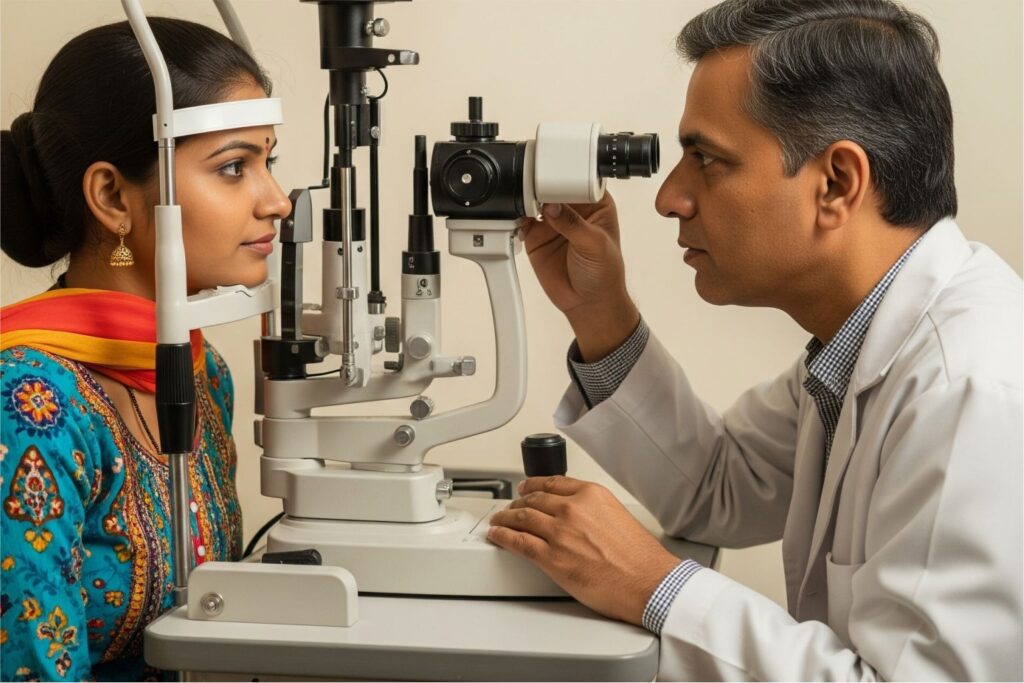
The World Health Organization (WHO) has praised Karnataka’s pioneering ‘Asha Kirana’ programme, which brings doorstep eye care to communities, and announced plans to share the initiative as a model for global health systems.
In a letter to Karnataka’s Principal Secretary of Health and Family Welfare, Harsh Gupta, WHO India Representative Dr Roderico H. Ofrin lauded the state’s efforts in launching and successfully implementing the innovative eye health program. He highlighted how ‘Asha Kirana’ aligns with WHO’s Integrated People-Centred Eye Care (IPEC) framework and represents a significant step toward eliminating avoidable blindness.
Also Read | Govt rebuts claims linking sudden Karnataka deaths to COVID-19 vaccines
Asha Kirana, a program launched by Karnataka’s Department of Health and Family Welfare in February 2024, aims to offer free and comprehensive eye screenings for people of all ages. The initiative also provides free spectacles to those in need and facilitates cataract surgeries to prevent avoidable blindness.
Calling the initiative both impactful and scalable, WHO proposed a comprehensive evaluation using its established tools, Eye Care Situation Analysis Tool (ECSAT) and the Eye Care Indicator Menu (ECIM). The goal is to document key processes, outcomes, and lessons, enabling other regions and countries to adopt similar models.
“This documentation will be conducted independently by WHO at no cost to the state,” the letter noted, adding that it will support global knowledge-sharing and the advancement of universal eye health. WHO has requested the state government to appoint a nodal officer for coordination.
Karnataka’s Health Minister, Dinesh Gundu Rao, took to social media platform X to share the news, calling it a proud moment for the state. “Karnataka is setting new benchmarks in public health with WHO recognising ‘Asha Kirana’,” he wrote. “This validation reinforces our commitment to equitable, accessible, and community-driven healthcare.”
The WHO’s recognition and upcoming documentation of ‘Asha Kirana’ is expected to further strengthen the programme and inspire similar community-based eye care models around the world.








